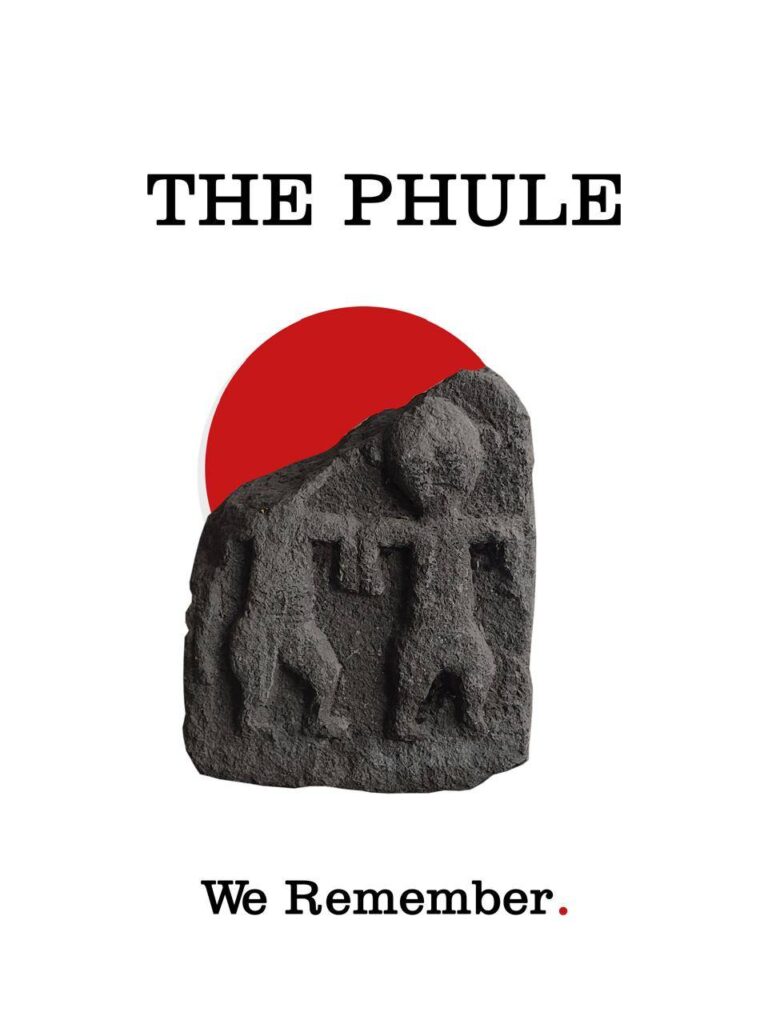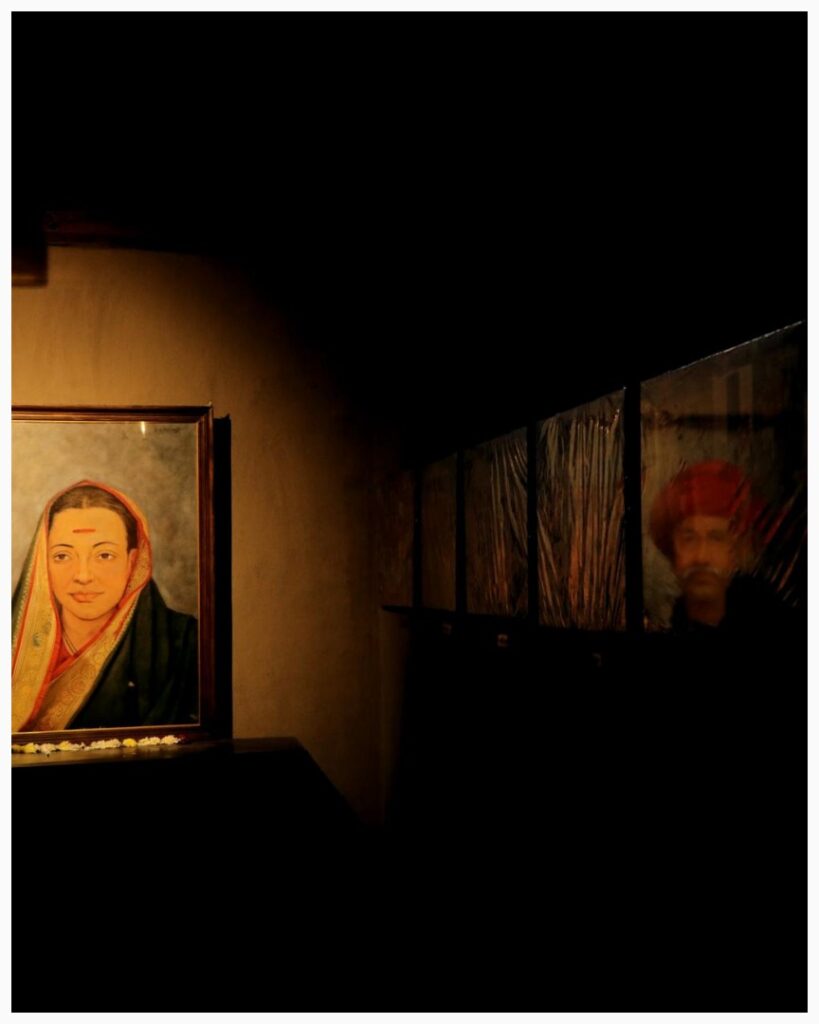[Beginning this week, we will be publishing the translation of the Marathi book Amhi Pahilele Phule (ed. Sitaram Raikar, Mahatma Jotirao Phule Samata Pratishthan, 1981) serially on The Satyashodhak. This collective translation is an initiative of the Abrahminical Histories of a City Collective, Pune.]

We are pleased to present a compilation of memories titled The Phule We Remember to our readers. These memories were penned by Mahatma Jotirao Phule’s associates, relatives and those who came in direct contact with him, thus making them invaluable. These writings will greatly aid scholars by offering them precious details about his biography.
In 1927, Late Pandharinath Sitaram Patil published Mahatma Jotirao Phule Yanche Charitra. It was the first well-researched biography of Mahatma Phule. Not content with this biography, Patil wished to write a more extensive one. Accordingly, he set out to collect materials that could substantiate every incident that happened in Mahatma Phule’s life. Patil’s previous biography indeed included some recollections shared by Phule’s contemporaries. He tried to collect additional information from them and other associates who had enjoyed Phule’s company. We encountered an orderly record of those memories in Patil’s collection written in a notebook; and, after a slight modification of that content, we are presenting them here.
A few things can be prominently observed while reading these memories. These memories were recorded between 1928 and 1930. Almost everyone who shared them was born around 1860. (One of Mahatma Phule’s relatives, Gyanoba Sasane, was very old at the time.) Therefore, we may assume that these memories pertain to the events between 1873 (that is, after the establishment of the Satyashodhak Samaj) and 1890. Almost all the people who recorded these memories belonged to non-Brahmin castes like Maratha and Mali. (This could be the result of the social circumstances of the period, that is, 1927–30, when these memories were documented.) A few Brahmin names such as Bhandarkar and Chiplunkar are evoked in these memories, but it seems that no attempt was made to collect memories regarding Mahatma Phule from acquaintances or relatives of these individuals. Secondly, these memories were documented, relying solely on memory, at an advanced age and without the aid of historical sources or the possibility of such primary sources. Therefore, this has led to a few inconsistencies. For instance, according to Sasane’s memories, Yashvantrao Phule died before Savitribai Phule, while the rest of the memories claim these events to be in the reverse order. There are similar inconsistencies in memories recalling the countries Yashvantrao was posted to after he joined the military. People wrote as they remembered. Therefore, scholars will need to consult other sources to find out the exact details of Savitribai’s death and the later life of Yashvantrao.
There are frequent repetitions in the memories. A few incidents seem to have particularly affected the chroniclers. For example, Mahatma Phule’s visits to the Junnar and Otur region for consciousness-raising, expulsion of the Brahmin priests from weddings and other ceremonies, Phule’s agricultural endeavours, his distinct attire and speech on the occasion of the Duke of Connaught’s banquet invitation, and the boarding facility for students, have been recalled by multiple individuals. It is evident that Mahatma Phule’s followers were greatly moved by these events.

But what is more valuable is the information we get about Mahatma Phule and Savitribai Phule’s dispositions. All the chroniclers were admirers of Mahatma Phule. They all refer to him respectfully as ‘Mahatma’. They have sensed the extraordinaryness of Phule, who fought for the emancipation of Dalits. They penned these memories while in awe of Phule’s personality. Therefore, a hint of exaggeration is quite possible. Even if we were to ignore these exaggerations, these memories throw light on Mahatma Phule’s distinct characteristics as a person. Phule was a simple man. His adeptness at mingling with the young, his fervent commitment towards students’ education, and his loving nature are quite evident. Further, he had imbibed the ideals of equality that he preached to others. We see Mahatma Phule working alongside his workers, and when he hurts his toe due to mishandling of stones, he massages it with mud and moves on just as the workers would. While the workers are partaking their meals, he draws water from the well himself. After the work season is over, he brings them to the farm in a dhol-lezim procession, treats them to a feast, and participates in this merriment himself. His diet was simple too. He didn’t have any addictions. Instead of the customary practice of offering betel leaf and nut to visitors, he would consciously and jocundly offer them flowers. It shows that he was already practising the ideals he later espoused in the Sarvajanik Satyadharma Pustak (The Book of the True Faith). His fearlessness and earnestness in fighting injustice are also reflected in some of the recollections. In one recollection we learn that while traveling through Mumbai in a horse cart he heard of a marriage ceremony of a devadasi [a slave/dasi, of a god/master — eds., English edition][1]“Memory Series: Anjali Arondekar – the Humanities Institute.” n.d. … Continue reading and immediately approached a British officer in order to rally efforts to end this practice. His extraordinary characteristics moved his followers; it is no surprise, then, that they believed he was an exceptional person.
The writers of these memories were close associates of Mahatma Phule; some were relatives. Some had lived in his house as clerks and students, almost like family. All of them remember Savitribai Phule with fondness. Savitribai’s affectionate nature, the trying times she went through for her husband, her love for Yashvantrao, and while she didn’t have children of her own, her motherly doting on all the children and students who were associated with Mahatma Phule’s work makes it apparent how much she was in unison with Mahatma Phule’s vision. All memories express a maternal devotion towards Savitribai. It is commendable to note that no tone of discord related to her is witnessed anywhere.
These memories mention a few people and incidents; endnotes have been provided regarding them. In a few rare instances, efforts have been made to bridge the gaps and incongruencies expressed in the memories. We are certain that the readers who care about Mahatma Phule’s contribution and ideology and the scholars interested in the social movements of 19th-century Maharashtra will find these memories useful.
We are grateful to Adv. R. C. Raut, brother of Late Pandhrinath Sitaram Patil, for sharing with us the notebook containing the memories and we also thank the ex-Vice Chancellor of Shivaji University, Late B. S. Mange and MLA, P. B. Salunkhe, Kolhapur.
(This introduction to the book has been translated by Sangita Gandhe, edited by Rucha Satoor and Ninad Pawar, and peer-reviewed by Suraj Thube.)
Notes
| ↑1 | “Memory Series: Anjali Arondekar – the Humanities Institute.” n.d. https://thi.ucsc.edu/memory-series-anjali-arondekar/#:~:text=Devadasi%2C%20is%20a%20Sanskrit%20term,%2C%20sex%2Dworker%2C%20prostitute. |
|---|
